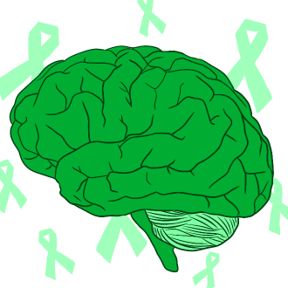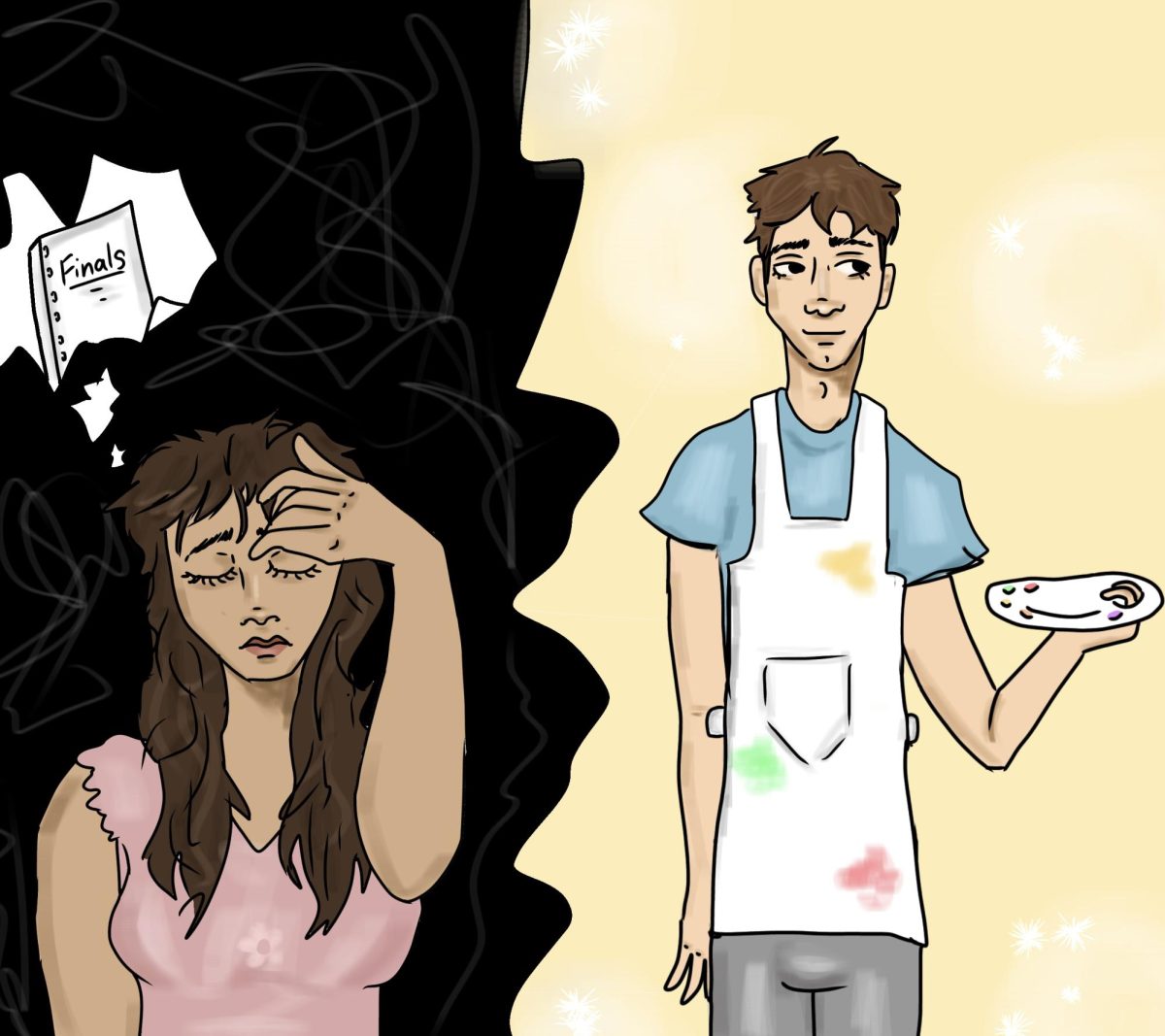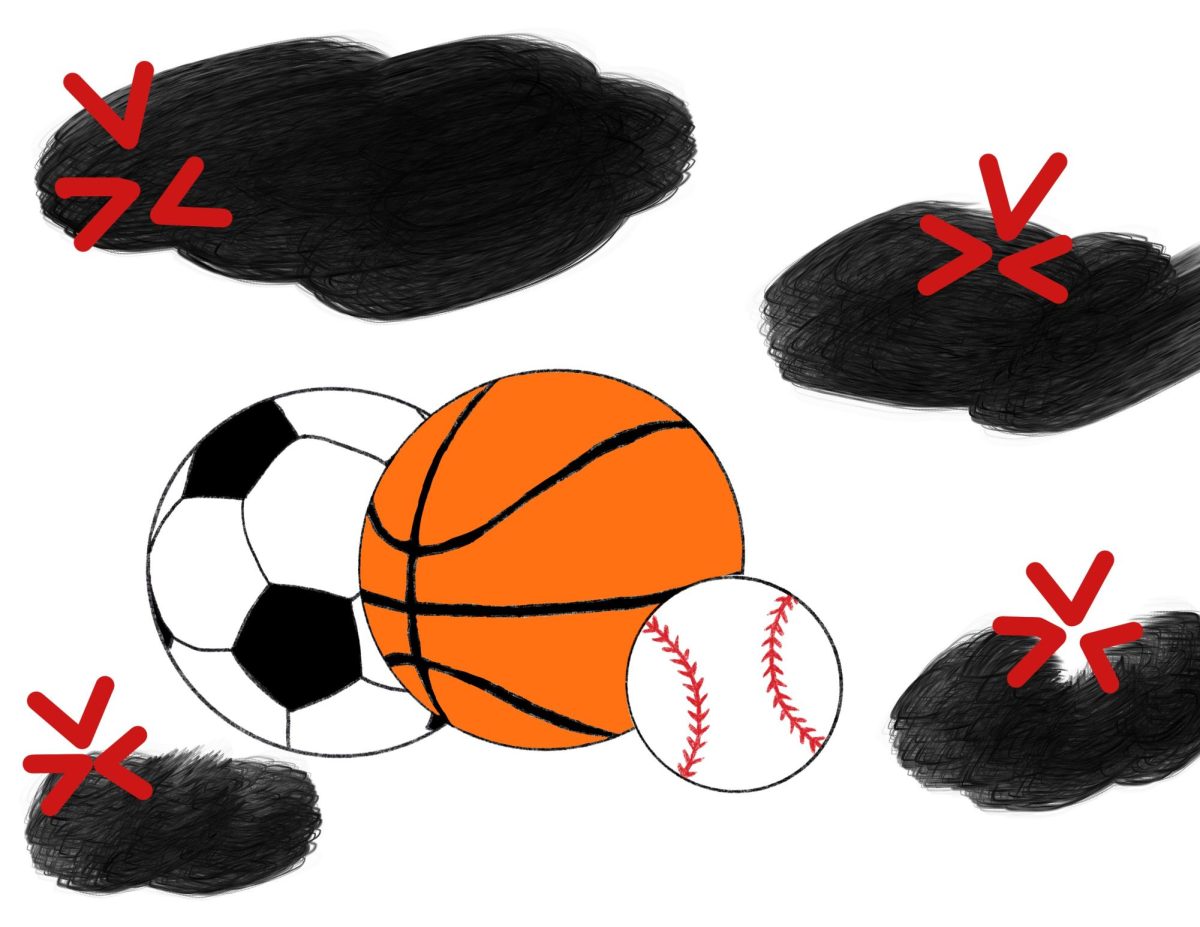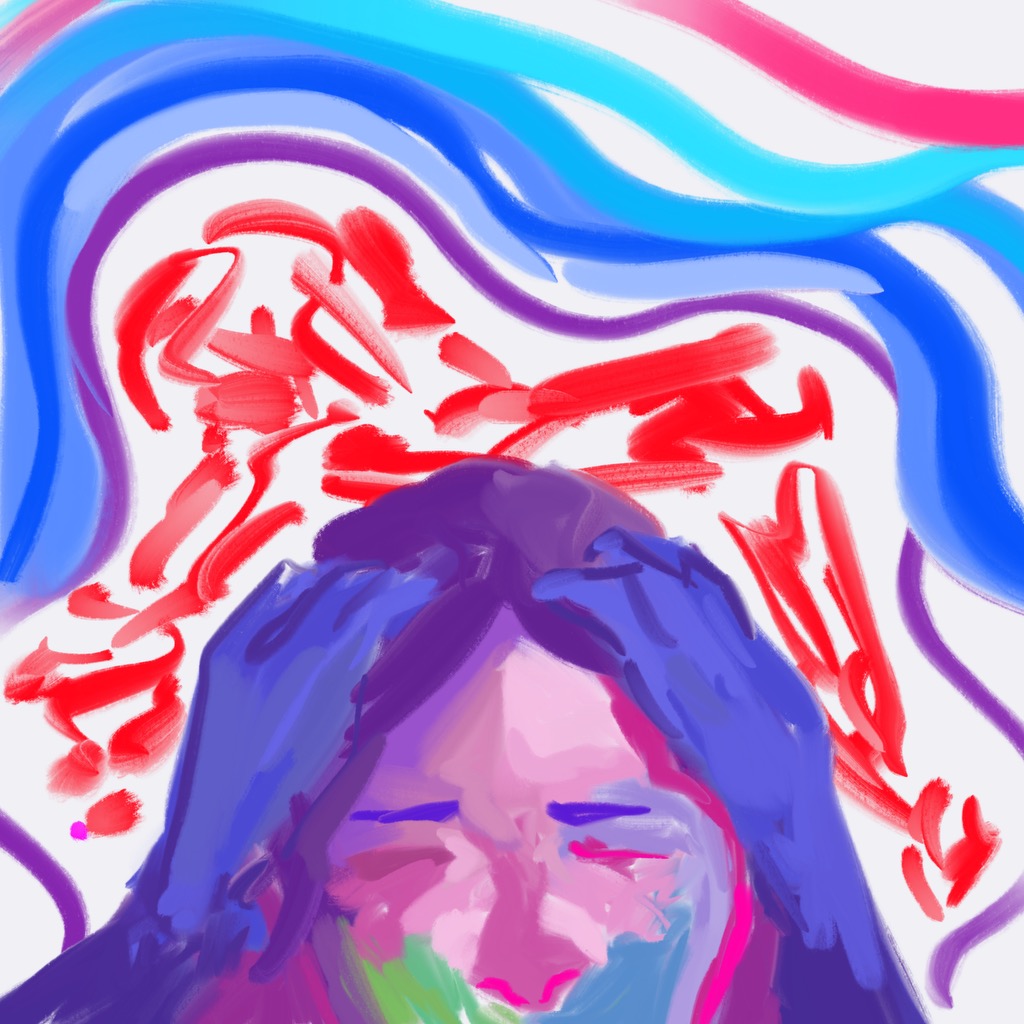May is Mental Health Awareness Month

Many people struggle with a multitude of mental health issues, and May is a month dedicated to raising awareness for these issues.
The month of May has been observed as Mental Health Awareness Month since 1949, according to Mental Health America (mhanational.com). Getting the month of May to be recognized as Mental Health Awareness Month was not an easy task, but it has cast light on a major issue that is not widely talked about. Mental Health Awareness Month raises awareness of the impact mental health can have on children, families, and adults. The aim of this month is to educate the public about the truths and myths surrounding mental illness and provide useful resources for those struggling with mental health issues. The establishment of Mental Health Awareness Month encourages people to reach out to others, check on their friends or family, and even break the stigma associated with mental illness. Although the month of May has been assigned to bring about awareness, mental health is an issue that should be talked about throughout the year. People must become more informed as it is an ongoing day-to-day struggle for those suffering from mental health issues.
According to Bost Inc. (bost.org), mental health is a successful state of mental functioning resulting in a productive mindset, fulfilling activities, healthy relationships with others, and the ability to adapt and cope with change and challenges. Being mentally healthy is essential for regular function. Mental disorders are considered a health condition. According to Bost Inc., mental disorders are characterized by alterations in thinking, mood, and behavior associated with stress, distress, or impaired function. Having a mental illness can affect a person’s physical health if not treated properly. These illnesses can contribute to physical issues such as muscle tension, pain, headaches, insomnia, and feelings of restlessness. Mental illness can affect a person’s body’s ability to function properly; a recent Oxford study found that several mental illnesses, if not treated, can even reduce life expectancy.
One movement that is widely talked about during the month of May is the Break the Stigma movement. The Break the Stigma movement is a campaign that aims to “break the stigma” associated with seeking help for mental health issues. According to Break the Stigma’s website (breakthestigma.org), one in five people suffer from mental illness. Mental illness can be very confusing and scary for those affected, mainly because of its complexity and how difficult it is to diagnose. Many people who think they might be experiencing a mental illness do not speak up and seek out help. They may be in denial or believe that they are weak by seeking treatment, or they may even be ashamed of the fact that they need help. It is difficult to explain what one might be going through. Not speaking up and seeking the help that one may need is extremely dangerous, and it can lead one to feel alone and trapped in their own mind. These feelings can lead to anxiety, panic attacks, depression, and they may ultimately even lead to suicide.
Determining what someone is struggling with simply by looking at them is difficult–mental illness is not a physical disease. However, there are simple steps that people can follow to help someone in need, thus breaking the stigma. These steps can be simple, and they can include thinking before you speak, educating yourself and others, and encouraging others to seek help when needed. According to Break the Stigma, the first step is to recognize that education on mental health should not be a topic that is “swept under the rug.” The second step is to address the social disinterest in the treatment of mental illness and show people that it is okay to seek treatment and that no one should be ashamed of their inner conflict. The third step is to enhance the spread of education. Education is desperately needed, especially due to the complexity of mental illness. Depression is not just “being sad” and anxiety is not just “being nervous.”
Licensed Master Social Worker (LMSW) Forensic Social Worker Nora Miata commented, “Mental health education is absolutely necessary because the average person has a skewed understanding of the topic. Society has taught us that mental health looks a certain way and only affects certain types of people, which is false. Awareness can be brought by simply talking about it more, including it in academic curriculums, and implementing appropriate resources to aid mental health issues.”
Mental health awareness is needed more than ever this year. The Covid-19 pandemic has had a tremendous impact on our mental health. The pandemic opened a world of unknowns–it isolated people and prevented them from interacting with their friends, family, schools, and workplaces. People were faced with new realities such as working from home, a lack of social outlets, in some cases home schooling, and a lack of human contact. Not only did people have to isolate themselves from normality but they began to live in fear of becoming ill, and “masking up” did not only become a requirement but a necessity. The looming fear of the virus, contracting it, and spreading it weighed heavily on the minds of many people. Some were unable to leave their homes, making them unable to work, and the repercussion for this was the threat of job loss and economic strain.
Director of Adult Mental Health Services at South Shore Child Guidance Center Wendy Lang shared, “The Covid-19 pandemic greatly affects your mental health. An increase in stress is a natural response to any crisis; however, stress dramatically increases when it is incomparable to any event in your lifetime. Vast amounts of stress directly affect your appetite, sleep, and overall ability to cope with daily life. The emotional consequences of social distancing include the feeling of being disconnected. The only way to reduce the symptoms of mental health disorders is acknowledgement.” According to the National Institute of Mental Health (nimh.nih.gov), trauma can worsen symptoms of depression, anxiety, and insomnia. There have been increased rates of alcohol consumption, drug use, irregular sleep schedules, and vast amounts of social media intake amid the traumatic pandemic.
Recovery is possible but takes time. Adapting to these new realities was challenging, and the media offered little escape. The news was mainly centered around statistics, the spread of the disease, and sometimes misinformation. Programs that were meant to be informative were surrounded by what felt like nothing but death, fear, negativity, and a lack of hope. According to John Hopkins Medicine (hopkinsguides.com), these factors can contribute to the growing rate of suicides in the US. Suicide is the tenth leading cause of death in the US, according to Fenway Health (fenwayhealth.org). Suicide claims the lives of nearly 47,000 people per year, and this number only increased as the pandemic worsened.
The past year proved more than ever why mental health awareness is so important. The month of May reminds us that mental health is essential, and that mental disorders do not discriminate based on age, sex, or economic standing. LMSW Social Worker Alicia Brenneis commented, “I think the future of mental health is changing. The pandemic has created opportunities for people to seek out mental health treatment via Zoom, FaceTime, or any other platform. These are a few minor innovations that have changed mental treatment for the better in a time of negativity. I believe that seeking treatment is becoming less of a social stigma and is on its path to be utterly accepted by all.” As many were pushed to their limits during the pandemic, it is important to educate the public so they are more aware of what others may be going through. Once these issues are brought to light, it will be possible to break the stigma surrounding mental health and getting help so that those struggling may find healing, recovery, and fulfillment.

Hi! My name is Alexis Raynor, and I am a member of the Class of 2024 and a managing editor for Horizon. I love to dance and hang out with my friends. I...







































